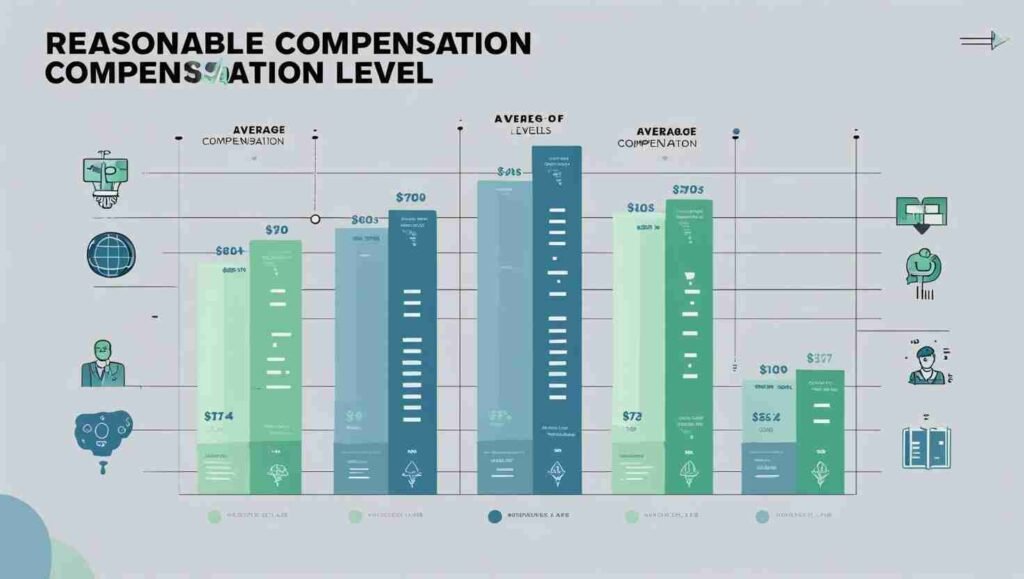Reasonable compensation for S-corporation owners varies significantly by industry due to differences in market rates, skill requirements, and profit margins. Understanding these variations is key to setting a salary that meets IRS standards and supports tax optimization. This article explores how compensation differs across industries, provides benchmarks, and offers resources to help you set a fair salary.
Why Industry Matters for Reasonable Compensation
As discussed in What is Reasonable Compensation for S-Corporation Owners?, reasonable compensation is the salary comparable businesses pay for similar services. Industry plays a major role because:

- Skill Specialization: High-skill industries like technology often pay more than retail or service sectors.
- Market Demand: Industries with high demand for specific roles offer higher salaries.
- Profit Margins: Sectors with higher margins, like consulting, can support higher compensation.
Setting your salary based on industry standards ensures IRS compliance and reduces audit risk.
Examples of Reasonable Compensation by Industry
Below are average salaries for common roles in various industries, based on data from the Bureau of Labor Statistics (BLS) and other sources:
| Industry | Role | Average Salary | Source |
|---|---|---|---|
| Technology | Software Development Manager | $151,150 | BLS: Computer and Information Systems Managers |
| Healthcare | Medical and Health Services Manager | $104,280 | BLS: Medical and Health Services Managers |
| Retail | Retail Store Manager | $46,890 | BLS: Retail Sales Workers |
| Construction | Construction Manager | $97,180 | BLS: Construction Managers |
| Professional Services | Accountant or Auditor | $73,560 | BLS: Accountants and Auditors |
These figures are national averages and may vary by location and business size. Always adjust for your specific circumstances.
Finding Industry-Specific Salary Data
To set a reasonable salary, use these resources:
- Bureau of Labor Statistics (BLS): Offers wage data for over 800 occupations, filterable by industry and region.
- Glassdoor: Provides user-submitted salary data by industry and role.
- Salary.com: Delivers detailed salary benchmarks for various sectors.
- PayScale: Customizable salary reports by industry and location.
- RCReports: Specialized reports for reasonable compensation in S-corps.
When researching, select the role and industry that best match your responsibilities in the S-corp.
Adjusting for Your Business
Beyond industry data, consider:
- Business Size: Smaller businesses may pay less than larger firms in the same industry.
- Location: Salaries vary by region due to cost of living and demand.
- Work Hours: Part-time roles may justify lower salaries, provided they’re still reasonable.
For example, a retail store manager in a small S-corp in a rural area might set a salary closer to $40,000, while one in a high-cost urban area might aim for $50,000.
Using Calculators for Industry-Specific Results
Our Reasonable Compensation Calculator accounts for industry differences by allowing you to select your sector and role. This ensures your salary estimate is tailored to your industry, reducing the risk of IRS scrutiny.
For a detailed process, see How to Calculate Reasonable Compensation: A Step-by-Step Guide.
External Resources
- BLS Occupational Employment and Wage Statistics
- Glassdoor Salary Information
- Salary.com Industry Salary Data
- PayScale Industry Salary Reports
- RCReports
Conclusion
Reasonable compensation varies across industries due to differences in skills, demand, and profitability. By using industry-specific data and tools like our calculator, you can set a salary that meets IRS standards and supports your business’s financial goals.